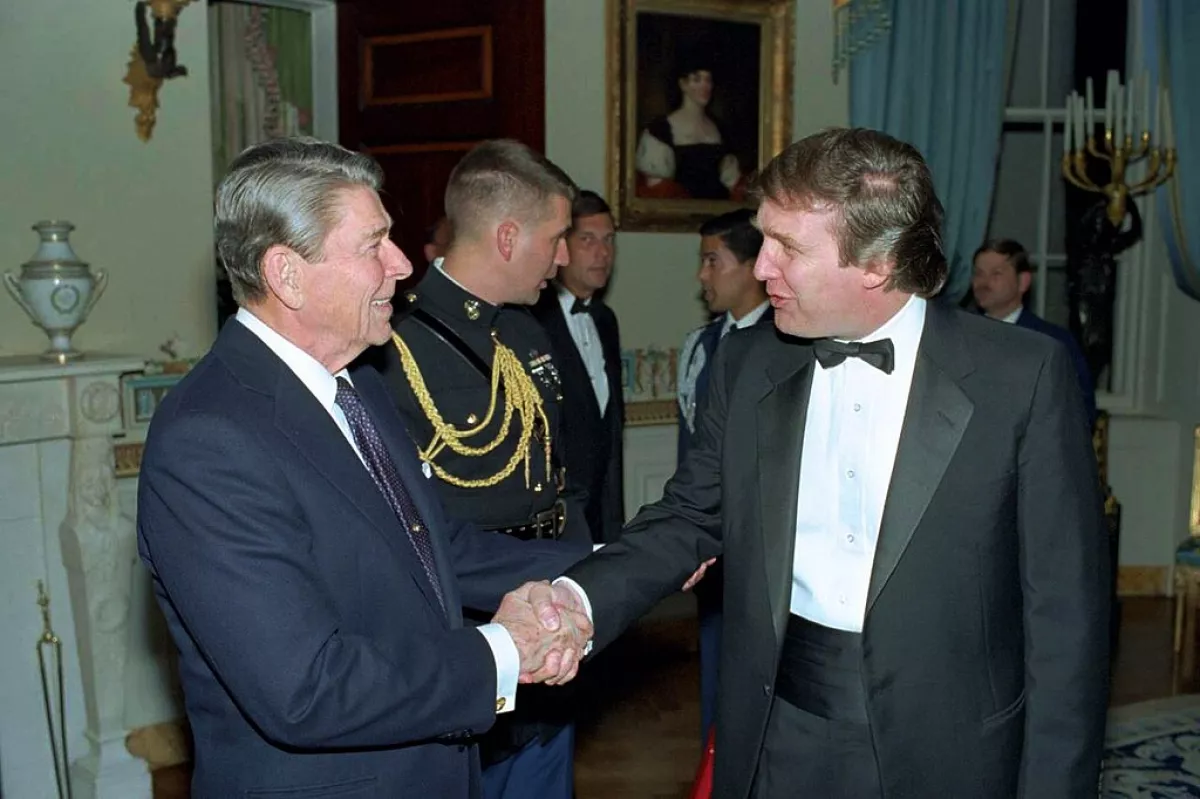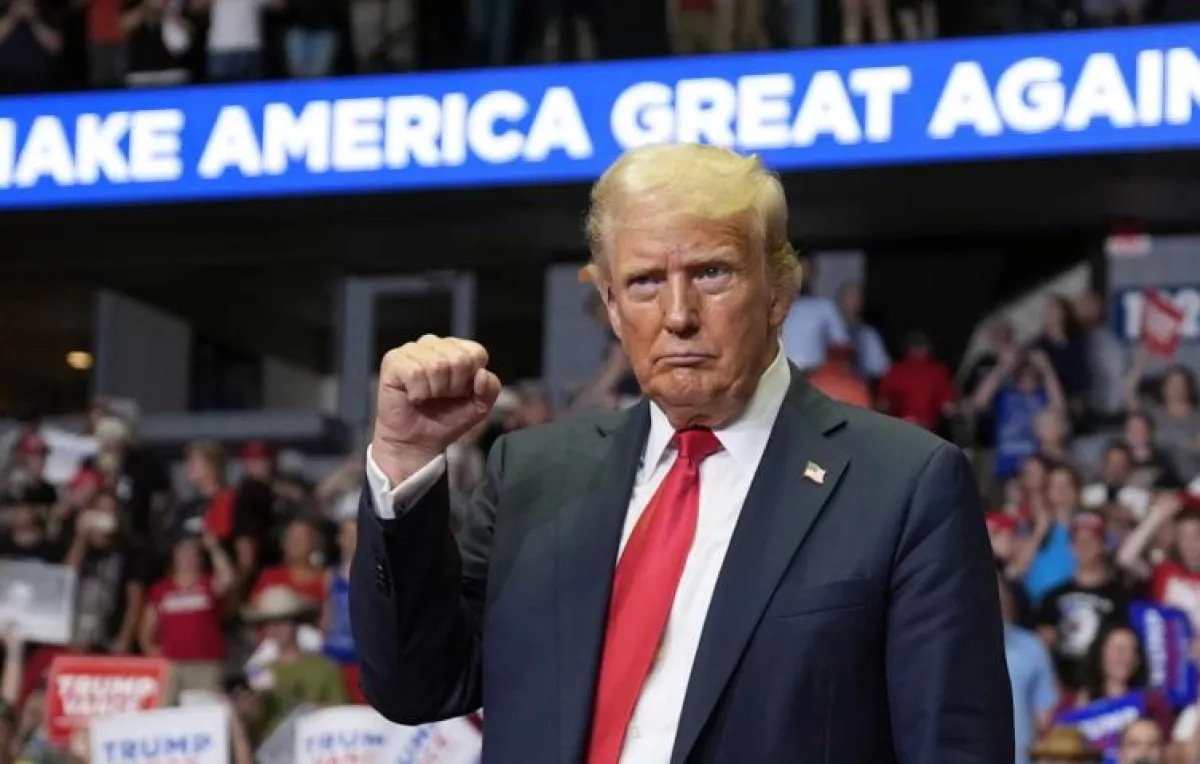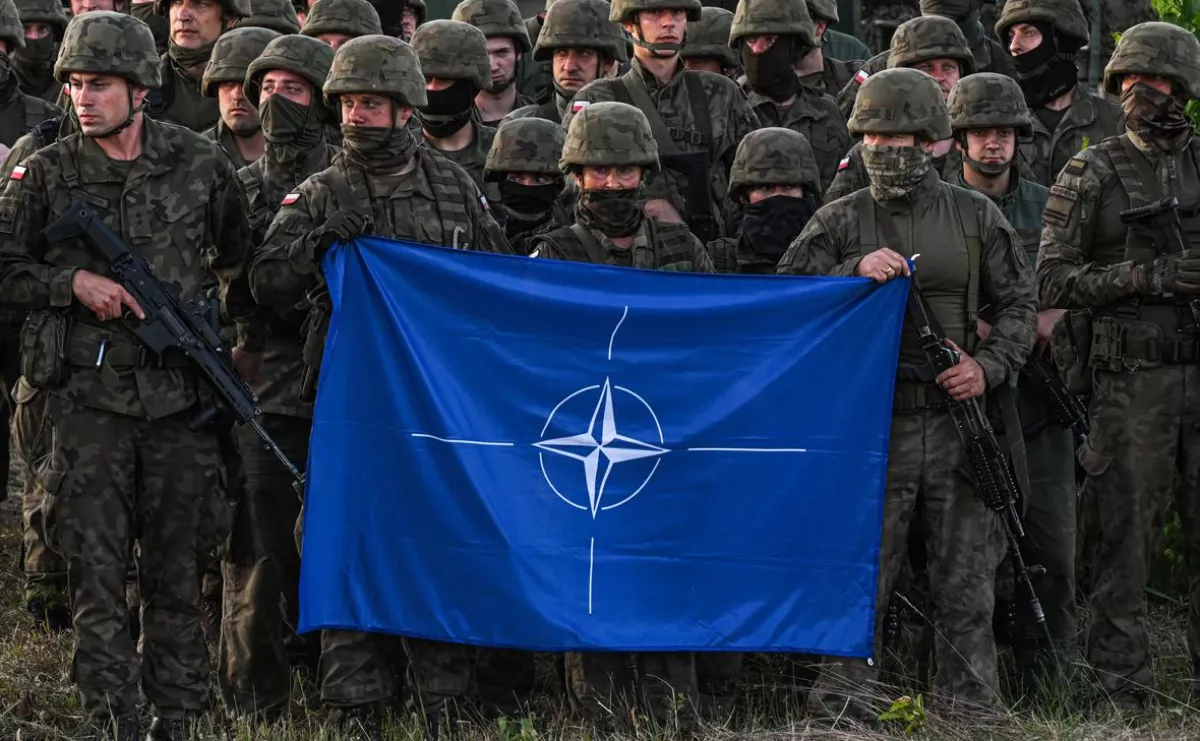Trump's Greenland plans expose EU's weakness and submissive attitude The silence of the lambs
U.S. President-elect Trump speaks of plans to annex parts of Denmark and Panama, as well as Canada. However, his most serious proposal concerns Greenland, which does not formally belong to the EU but is a territory of Denmark, a member of the EU. In Brussels, the response has been telling: European Commission President Ursula von der Leyen, dubbed "Iron Ursula," has claimed illness, and leaders of key EU countries have remained silent, leaving Denmark to face Washington's demands alone.
Given the European response, the new U.S. administration is likely to proceed with its plans regarding Greenland. However, other EU members and the rest of the world are closely monitoring the situation—because if a country from the heart of "old Europe" is under threat and even Brussels refuses to defend it, then what value does European integration and the talk of a "European army" really have?
Trump means business
For a long time after Donald Trump's first election to the U.S. presidency, global liberal elites reassured themselves that his radical plans and harsh actions were merely extreme, but calculated tactics. Portraying himself as a political berserker, ready to charge at opponents without regard for the consequences, he was simply trying to intimidate them into making concessions, without risking provoking him. They argued that this was similar to how Reagan operated, scaring the Soviet Union by playing the role of a mad cowboy, a persona he never truly was, but it worked. The Soviet side refrained from direct confrontation with the U.S. during Reagan's presidency, as they feared he might do anything. At the start of Trump's first term, the yellowish American publication BuzzFeed reported that a book by a Reagan administration official about this tactic, allegedly devised in the 1980s, was a must-read for Trump's team.

Perhaps that's why, when the American president first spoke in 2019 about his desire to buy Greenland from Denmark and annex it to the United States—an enormous territory of 2.1 million square kilometres—he was largely dismissed and not taken seriously. Soon after, Trump lost the election, and European politicians breathed a sigh of relief, thinking it was just another tactical manoeuvre.
It turns out that this is not the case. The issue isn't just that Trump continues to consistently raise and deepen the topic, now even considering the use of military force, let alone economic pressure. His closest associates have started working on it as well.
Trump's son, Donald Jr., visited Greenland on January 7, where he handed out caps emblazoned with the slogan "Make Greenland Great Again" (a play on his father’s "Make America Great Again") and held a politically ambiguous meeting with local residents. After his departure, American activists appeared on the island, waving U.S. flags, handing out similar merchandise, distributing hundred-dollar bills, and posting photos and videos online. The island's authorities, of course, did not dare to stop them. And just last weekend, the vice president of the new Washington administration J.D. Vance threatened to simply take the island if Copenhagen did not agree to a deal: “We don't have to use military force, Shannon. The thing that people always ignore is we already have troops in Greenland. Greenland is really important for America strategically.”
On January 13, it emerged that Republicans in the U.S. House of Representatives had already prepared a bill allowing President Trump to begin negotiations with Denmark to purchase Greenland at the same time as the start of his second term. Passing such a law may not be easy, but Trump has already started the corresponding campaign without it and is unlikely to stop.
EU won't help
There are no reasons for Trump to stop, especially as all signals from the Europeans suggest a submissive attitude towards his course. On January 15, Danish Prime Minister Mette Frederiksen, in a phone call with Trump, only dared to say that Greenland should decide its independence on its own.
Last week, Frederiksen timidly stated she would like to preserve her country’s territorial integrity but expressed understanding of Greenlanders' desire for independence—an idea sparked by Trump in the 2010s. When Trump hinted at using force to alter the borders, Frederiksen oddly responded, saying she didn’t share the assumption that Washington might use force.
Much like Frederiksen, her foreign minister did not dare to utter a word in response to American claims but merely respectfully stated that he understood the U.S. concerns regarding security in the Arctic and emphasized Copenhagen's willingness to negotiate with Donald Trump, alongside Greenland, to ensure "American interests."

It should be emphasized that discussions of "independence" should not mislead anyone. There is no viable independent statehood that could be created in Greenland, primarily due to its minimal population (less than 57,000 people, including foreigners) and the objective impossibility of increasing it. At best, a mere façade of statehood could be created, a simulation of a country, while the territory remains entirely subordinated to a larger state. This means that the Danish Prime Minister has effectively agreed to cede the island to the U.S., provided that a pseudo-democratic veneer is maintained.
Copenhagen formally refuses to sell its overseas territory, but Greenland's authorities have already declared their willingness to expand cooperation with the U.S., signalling their interest in a piece of the future deal. The first poll on the issue of Greenland joining the U.S., published on January 12 by a little-known American firm, revealed that 57.3% of the population is already ready to support this move.
Of course, the forces of Denmark and the U.S. are not equal. But Denmark is part of the European Union, whose leadership recently made a grand show of creating military structures and threatened to tackle defence issues independently of NATO. So, how has the EU reacted to this situation now?
No reaction. When things started heating up, on January 3, the press secretary of the European Commission suddenly announced that its President, "Iron Ursula," had fallen ill with "severe pneumonia." She was said to be cancelling all her engagements for the next two weeks and would be staying at home. Naturally, she had no time to deal with Trump. The press immediately grew suspicious, noting that no details had been provided about her condition or the cause of the illness. Last week, it was revealed that she had also been admitted to the hospital—roughly for a week—and the media began talking about the potentially life-threatening nature of pneumonia!
Even other leaders of European Union structures and heads of major Western European countries, which are allies of Denmark, were afraid to challenge Trump—even before he assumed office. Denmark found itself alone.
Domino effect
There is no doubt that this striking example—regardless of how events unfold—will have far-reaching and destructive consequences for the entire "collective West" and, in particular, for the European Union. The "domino effect" regarding the disintegration of the EU's political agency will continue to grow, as evidenced by the rush of even liberal EU leaders to announce their compliance with Trump's demands. These include increasing military spending (which translates into higher orders for the U.S. military-industrial complex) and seeking ways to boost purchases of exorbitantly priced American gas, as demanded by the American president.

It all started, by the way, not with Trump and certainly not because of him. During Trump's first term, Europe still had politicians who could say a firm "no" to American leaders. Perhaps the last of this group was German Chancellor Angela Merkel. However, under Biden, everything changed. The European liberal establishment didn't even dare to argue with Biden—seemingly a like-minded individual from the same liberal party in the U.S.—when he launched a destructive campaign against the EU economy. This included the passing of scandalous laws with misleading titles, such as the Inflation Reduction Act and the CHIPS Act. The first, under the guise of promoting environmentally and climate-friendly technologies, essentially sought to lure innovative enterprises from the EU across the Atlantic. The latter targeted the microelectronics industry in a more subtle manner. There were fears this could lead to a trade war between the EU and the U.S., but the EU chose to pretend nothing was happening, especially since the aftermath of the pandemic and the war with Russia allowed the decline of European industry to go unnoticed. In other words, the European politicians' retreat under U.S. pressure in the case of Greenland is part of the continuation and intensification of the "domino effect."
It is important to highlight that the Europeans have accepted a de facto "creeping capitulation" to Washington, possibly in a difficult but not entirely hopeless situation. Despite the challenges facing the EU, the U.S. also has its own significant problems. On January 17, the U.S. Treasury announced emergency measures to prevent a default. Despite the weakening of the European Union as a whole and certain individual countries, they undoubtedly still possess vast resources, top-tier political, socio-economic, and scientific structures, and enormous technological reserves.
A striking example of this is the situation surrounding two long-time competitors in the aerospace industry—the American Boeing and the European Airbus. Boeing's technological issues, scandals revealing poor production practices, and the "suicide" of a key whistleblower, along with the corporation's inflexible management structure, have placed the company in a very difficult position. As last year's sales figures demonstrated, Boeing's performance is worse than ever in the past twenty years. In 2023, European Airbus surpassed its American rival by nearly double, and the gap in favour of the Europeans is only widening. In 2023, the difference in delivery volumes between Airbus and Boeing was 207 aircraft; by the end of last year, it had reached 418 units.
In other words, Europe still possesses vast assets, capital, and material resources accumulated through hard work, as well as through colonial and neocolonial exploitation of the non-Western world. However, to rejuvenate the European Union or even just certain individual countries based on this foundation, the pseudo-liberal political elites lack both the political will and the bold vision for the future. They have become mired in doctrinaire dogma and a thirst for geopolitical expansion at any cost. By comparison, even the leadership of tiny Panama, and the leaders of the much more U.S.-dependent Canada, have shown far more resolve and unity. In other words, the behaviour of European politicians is the very epitome of weakness, which is dangerous not only for Europeans but for the entire world.








